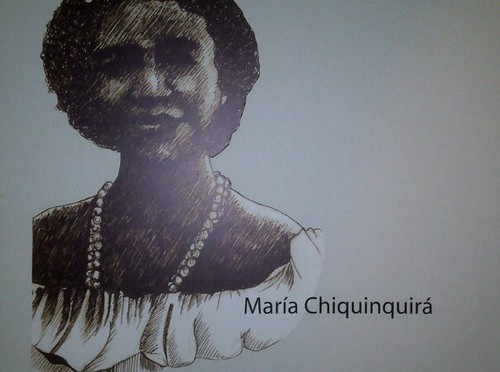Youth jamming to Afro-Ecuadorian music
in Ecuador's black region Valle de Chota
in Ecuador's black region Valle de Chota
In Quito, Ecuador, one taxi cab after another passed me by despite my obvious flagging. Another sped by me to pick up a white couple 25 yards from where I was standing. When I approached a taxi letting out a couple of white passengers at a busy intersection, the driver wagged his finger making it clear that he did not want me in his cab. To make light of the situation, I waved some bills as he was about to drive off.laughed at him when he stopped to reconsider. He appeared very relieved to learn that I was an African-American gringo, and not a homegrown Afro Ecuadorian stereotyped to be robbers and thieves.
The abundance of Ecuador's black international soccer stars like Agustín Delgado is helping to improve Ecuador's relationship with the black community.
As recently as November 19, 2015, an anti-racial discrimination decision was handed down on behalf of an Afro-Ecuadorian who entered Ecuador’s Escuela Superior Militar (The “West Point” of Ecuador) in hopes of becoming Ecuador’s first Black army officer. He was one of 200 selected out of 5,000 applicants after passing a battery of academic, psychological, and physical tests.
Afro-Ecuadorian Cultural Center in Quito, the nation's capital
The lieutenant forced him to crawl through mud while totally nude, and fellow cadets testified that the officer regularly deprived him of food or would make him eat the food he did receive while on the floor. The black cadet was even denied sleep at some points and was ordered to stand guard all night, all because the lieutenant did not like having a young black man under his command.
Avenida Colón (Columbus Avenue) near my place of residence in Quito, Ecuador
This lieutenant has been sentenced to five months and four days in prison for racial hatred and has been ordered to pay the cadet’s legal fees. The military academy itself has been ordered to make a public apology to the cadet during an official military ceremony. And Ecuador’s armed forces has been ordered to publish details about the case on its website and in official publications.
Ecuador first passed penal laws against racial hatred in February of 1979, but this case is the first time anyone has been convicted of the crime.
This black community in the Andes Mountains first reacted to me like I was Five-O
(undercover cop) until they realized I am just an African American visitor trying to connect with the diaspora.
The attorney of the black cadet explained there is still a long road ahead in terms of making it easy for other Afro-Ecuadorians to bring racial discrimination cases to court. There will certainly be more cases, but litigating them remains a challenge.
Because there aren't enough lawyers with the experience necessary to fight racial discrimination, attempts have been made to provide more training in conjunction with the work that Ecuador is doing in support the United Nations’ declared International Decade for People of African Descent (2015-2024).
Slave woman María Chiquinquirá won a stunning victory in court to win freedom for herself and other slaves.
Both the Afro-Ecuadorian cadet and the lieutenant have been ordered to undergo psychological counseling in regard to this case.






No comments:
Post a Comment
Anonymous comments will be ignored and deleted.